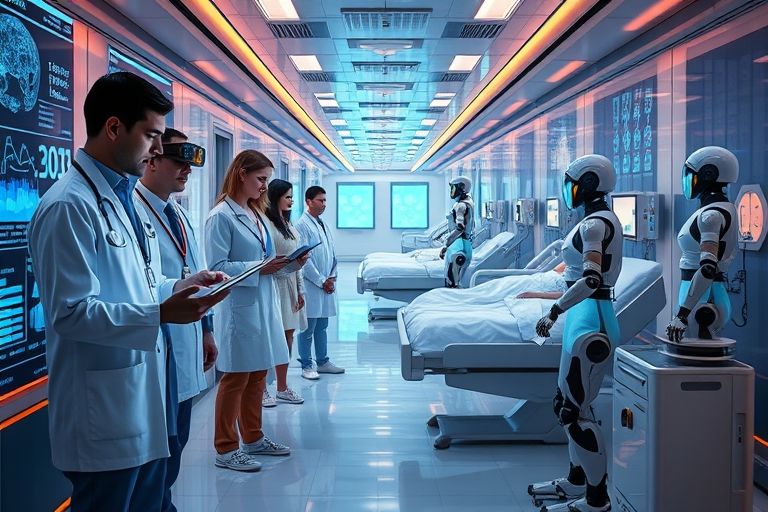
Artificial Intelligence (AI) has been making waves in the healthcare industry, transforming the way healthcare providers deliver patient care. AI is an umbrella term for technologies such as machine learning, natural language processing, and robotics that can analyze data, learn from it, and make decisions based on it. Here are some of the ways AI is revolutionizing healthcare:
AI-powered diagnostic tools are helping doctors make more accurate diagnoses, reducing the risk of misdiagnosis and enabling early detection of diseases. In some cases, AI is even outperforming human doctors. For example, an AI system developed by Google was able to detect breast cancer with greater accuracy than human radiologists.
AI is also being used to speed up drug development. By analyzing vast amounts of data, AI algorithms can identify potential drug candidates much faster than traditional methods. In fact, AI has already been used to develop drugs for diseases such as Ebola and COVID-19.
AI-powered wearables and sensors are helping healthcare providers monitor patients in real-time, enabling early detection of potential health issues. For example, wearable devices can track a patient's heart rate, blood pressure, and other vital signs, alerting healthcare providers if there are any abnormalities.
Robotic surgery is a rapidly growing field, with AI-powered robots performing surgeries with greater precision and accuracy than human surgeons. These robots can analyze data in real-time, adjust their movements accordingly, and even learn from their mistakes.
Telemedicine is becoming more popular, with patients able to receive medical care from the comfort of their own homes. AI-powered systems can analyze patient data remotely, enabling healthcare providers to make diagnoses and prescribe treatment without the need for an in-person visit.
The impact of AI on healthcare has been significant, with benefits for both patients and healthcare providers. Here are some statistics that highlight the impact of AI:
These statistics show that AI is transforming healthcare, making it more accurate, efficient, and cost-effective. However, there are also concerns about the use of AI in healthcare, such as the potential for bias in algorithms and the need for ethical guidelines.
AI is revolutionizing healthcare, from diagnostics and drug development to patient monitoring and telemedicine. Its impact on healthcare has been significant, with benefits for both patients and healthcare providers. However, as with any new technology, there are also concerns that must be addressed. It is clear that AI will continue to play a significant role in the future of healthcare.